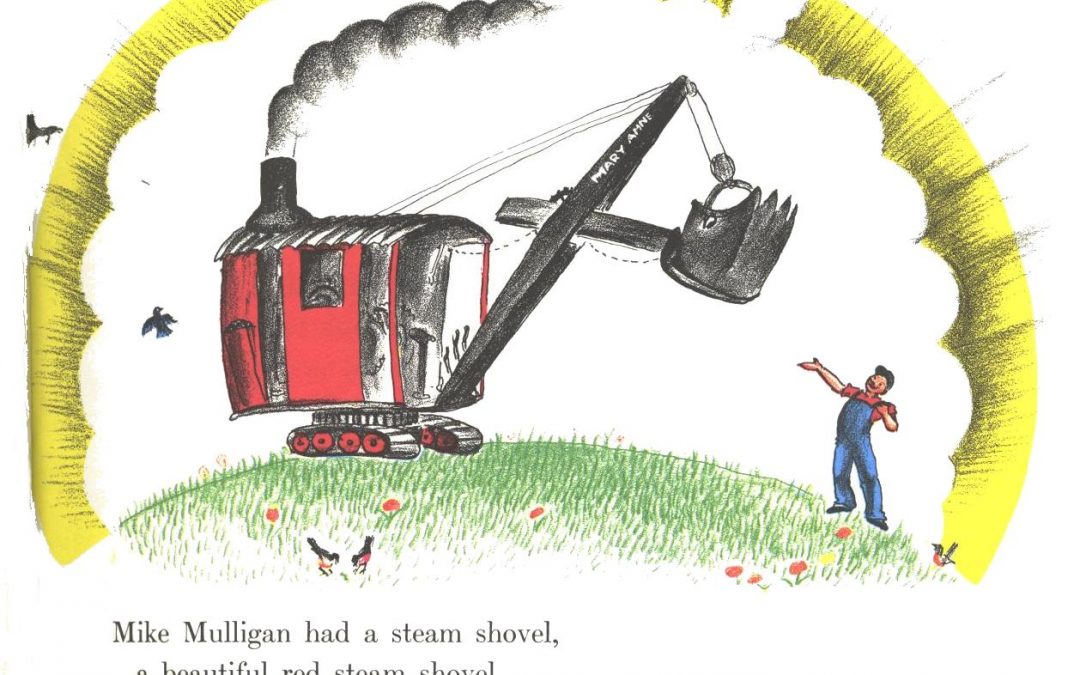Without any considerable effort, most of us could probably name plenty of books from our childhood that had a great impact on us. Whether we liked the characters, the pictures, or simply the association of something with the book, we all have those books we read over and over. A few of my favorites were The Little Mouse, the Red Ripe Strawberry, and the Big Hungry Bear, The Tale of Peter Rabbit, and Mike Mulligan and His Steam Shovel. The thing I love about these kinds of books even today is that they are some of the most memorable pieces of literature I have ever read, and yes, I did call them literature.
Children’s’ books aren’t meant to be deep and thought provoking in the same way as something like Lord of the Flies, but they are still the kinds of books that I think I learned some of my most valuable lessons from. I learned about the concept of lying, responsibility, and honesty from these kinds of books at a very young age. These books teach children lessons through stories and characters they can relate to and sympathize with, allowing them to truly internalize the messages of the stories.
Why is it then that children’s books don’t often seem to touch on topics that they may really need to learn about, such as death in the family, divorce, or discrimination? These are all very real things that can affect families so why hide them from our children. Perhaps it is the idea that children need not worry themselves with those things, or more likely that they wouldn’t really understand it, but that doesn’t keep us from teaching children things like religion. We shouldn’t censor things and hide them from our children if the act of teaching them will only help prepare them for something before it might happen.
Take discrimination for an example. We all have some sort of relationship to discrimination. Whether it is due to our race, religion, traditions, sexuality, or any number of other characteristics, we all see it happen. A child is going to grow up in a world where discrimination is a fact of life. We know it isn’t right, and we are working to address it where we can, but we need to be realistic when it comes to teaching our children about it. The first step is to teach them when they are young, and a great way to do that is to have books about difficult topics written specifically for teaching a young audience.
Many of the books I read as a kid were great fun to read, but in all honesty didn’t really touch on difficult topics at all. If they were to do so I would have been exposed to certain things at a younger age, giving me more time to understand something before I actually encountered it in my life. Such things as losing a pet, having another child in the family, being adopted, and divorcing parents are all things that children can deal with, and many do. Why should we wait to talk to them after something happens? In some cases, reactive education may not be enough to help them cope with such a change in a healthy way. This is where we can use proactive education to its fullest potential.
With this being said, we have so many different communities in our society today that a few books from the same few people can’t begin to address all the problems faced by even one community. If we were to have a wide range of authors writing about an even wider range of topics and people I think we could really make an impact on the coming generations.
What are your favorite books for the very young that cover these issues? Share these titles with us.
Meet the blogger:
 MAYA WESMAN a senior at Hamline University majoring in Creative Writing with a focus in fiction. She loves writing fantasy and science fiction, and one day hopes to author children’s books. She believes that through stories we can explore what it really means to be humans in a complex world.
MAYA WESMAN a senior at Hamline University majoring in Creative Writing with a focus in fiction. She loves writing fantasy and science fiction, and one day hopes to author children’s books. She believes that through stories we can explore what it really means to be humans in a complex world.


